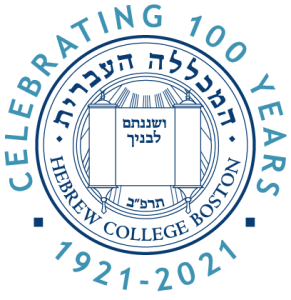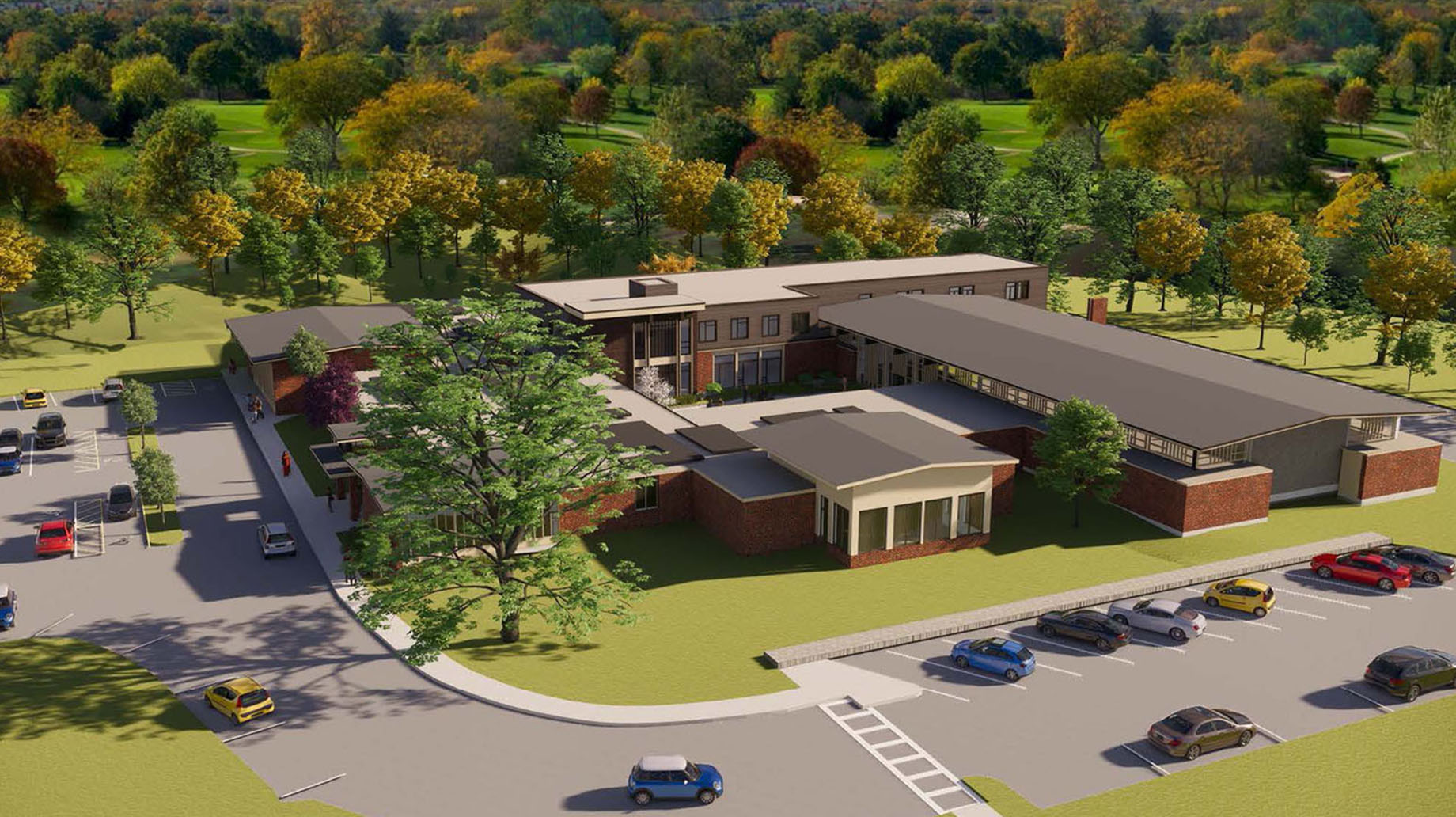Fast Facts
 Founded
Founded
Hebrew College was founded in 1921. Visit our Centennial page.
Mission
Reimagining Jewish learning and leadership for an interconnected world. Making our lives more meaningful, our communities more vibrant, and our world more whole.
Affiliation
Hebrew College is a pluralistic institution, open to all forms of Jewish expression, commitment and practice. We welcome diverse perspectives on any given Jewish topic, both to encourage a dynamic exchange and to foster respect for other points of view. The College is not formally affiliated with any religious institution or denomination. Read the College’s Mission Statement.
Location and Campus
Hebrew College is located in the Greater Boston area — one of the leading regions of Jewish innovation and entrepreneurship and home to Combined Jewish Philanthropies (CJP), a progressive federation encompassing a wide range of Jewish religious and social-justice institutions, affiliated and independent congregations, day schools and supplementary Jewish schools that are at the forefront of Jewish education.
In January 2023, Hebrew College relocated from Newton Centre to a new shared campus (pictured above) at 1860 Washington Street, Newton, MA 02466. The new shared campus offers an inspiring model for Jewish communal sustainability, inclusion, and innovation and builds on the strength of our collaboration with our new shared campus partners: Temple Reyim, Mayyim Hayyim Living Waters Community Mikveh and Education Center, Zamir Chorale of Boston, Jewish Arts Collaborative, Jewish Women’s Archive, Keshet, and the Massachusetts Board of Rabbis.
Hebrew College offers formal academic classes on campus. Informal community classes and programs take place on campus, as well as at synagogues and other off-campus locations. Matriculated Hebrew College students are permitted to take academic courses through partner institutions of the Boston Theological Interreligious Consortium (10 Theological Institutions in Boston Area), and can apply the credit towards a Hebrew College degree. Matriculated Hebrew College MJED students who are also enrolled in the Pardes Institute of Jewish Studies take courses both at Hebrew College and at Pardes Institute of Jewish Studies (Jerusalem).
Status
A private, not-for-profit, graduate degree-granting institution, Hebrew College offers programs leading to rabbinical and cantorial ordination, and master’s degrees in Jewish education and Jewish studies, and provides non-degree community adult, youth and professional development study opportunities.
President
Rabbi Sharon Cohen Anisfeld
Annual Budget
$9.3MM (FY`24)
Management Audited Financials
Students
-
- Graduate Degree Students: 103 — 77 full-time and 26 part-time
- Tamid Adult Learners: 1,545
- MaTaRoT Students: 116
- Gap-Year Students: 74
- Wexner Fellowships (12-year total): 17
- 92% retention rate for first-year graduate students returning for their second year (includes all new student cohorts enrolling between fall 2019 through fall of 2023)
- 75% of new ordination students graduated within 6-7 years (includes all new student cohorts first enrolling between fall 2009 through fall of 2019)
- 89% of graduate degree-seeking students are receiving some form of fellowship, scholarship or need-based grant from Hebrew College
Alumni
- 186 Rabbinic Alumni
- 43 Cantorial Alumni
- Rabbinical student placement rate: 100%
- Rabbis working in pulpits: Reform movement synagogues (27%), Conservative movement synagogues (33%), independent synagogues (29%), Reconstructionist movement synagogues (11%)
- Number of states where rabbinical & cantorial alumni work: 22
- Number of countries where alumni work: 4
- Alumni employers: synagogues, Jewish day schools, Hillels, Jewish communal/nonprofit organizations, assisted living/hospital chaplaincy
- Alumni positions: spiritual leaders (rabbis, cantors, rav-hazzanim), executive directors, pastoral counselors, scholars, educators and heads of school, musicians, artists, social activists, community organizers
- Loan default rate: 0.0% (Cohorts = classes of 2020 to 2022.) Source: US Department of Education.
Faculty and Staff
- Faculty: 14
- Part-time faculty for accredited graduate programs: 12
- Part-time faculty for community education programs: 54
- Full-time staff: 31
- Part-time staff: 11
Gann Library
15,000 volumes
Graduate Degrees Offered
- Rabbinic Ordination (on campus only)
- Master of Jewish Education
- Master of Arts in Jewish Studies (on campus only)
- Certificate in Tefillah Leadership: Shabbat
- Graduate-Level Certificates in Jewish Education
Community Education Opportunities (Non-Degree)
 CJP Supported Adult Programs
CJP Supported Adult Programs
- Me’ah: Classic
- Foundational, enrichment, intensive, experiential, travel offerings for the mind, body, heart, and soul.
Professional Development: Centers & Institutes
- Miller Center for Interreligious Learning & Leadership
- MaTaRoT: Hebrew College’s Center for Jewish Professional Development
Teen Learning Programs
- The Dignity Project
- Teen Beit Midrash & Moot Beit Din
- Kivunim (gap-year)
- Young Judaea Year Course (gap-year)
Accreditation
Hebrew College is accredited by the New England Commission of Higher Education (NECHE).
College Partners
- Bishvil-Haivrit Program
- Boston Theological Interreligious Consortium (BTI)
- Boston College School of Theology and Ministry
- Boston University School of Theology
- Camp Yavneh
- Combined Jewish Philanthropies (CJP)
- Hadar
- Kivunim Gap-Year Program
- Pardes Institute of Jewish Studies
- Massachusetts Board of Rabbis
- New England Board of Cantors
- SVARA: A Traditionally Radical Yeshiva
- Young Judaea Year Course
On Torah Commentary
Watch, listen and read the words of Torah emerging from the students, faculty and alumni of our school. May they draw you more deeply into sensitive listening, probing questioning and humble speaking of Torah and Jewish living.
Publications
- Koleinu newsletter
- Renewing Torah: Rosh Hodesh newsletter
- Miller Center Update
- Hebrew College Blog
- Speaking Torah Podcast
- Annual Impact Report
- Hebrew College High Holiday Companion
- Hebrew College Passover Companion
Hebrew College Social Media


 Founded
Founded
 CJP Supported Adult Programs
CJP Supported Adult Programs